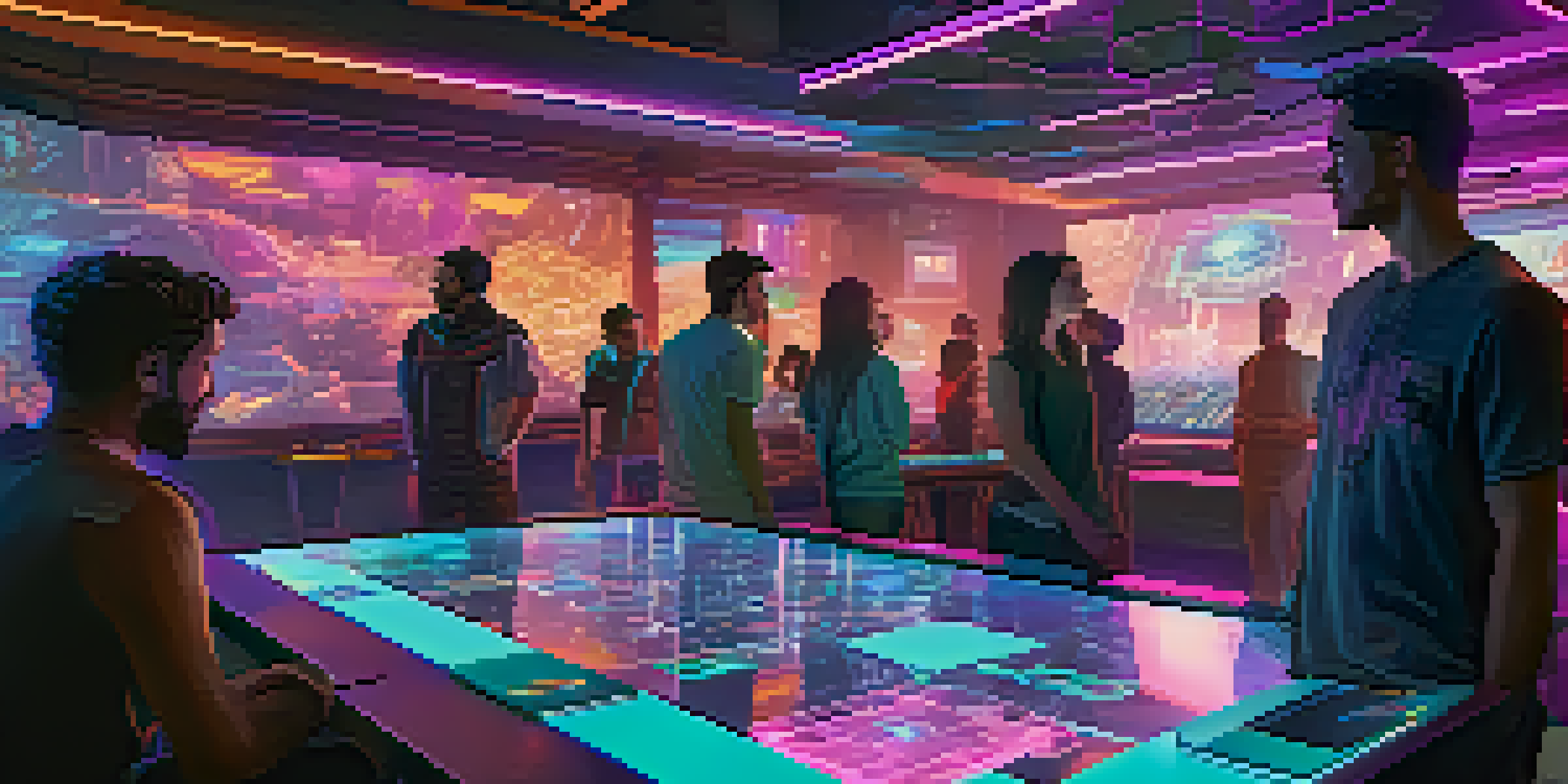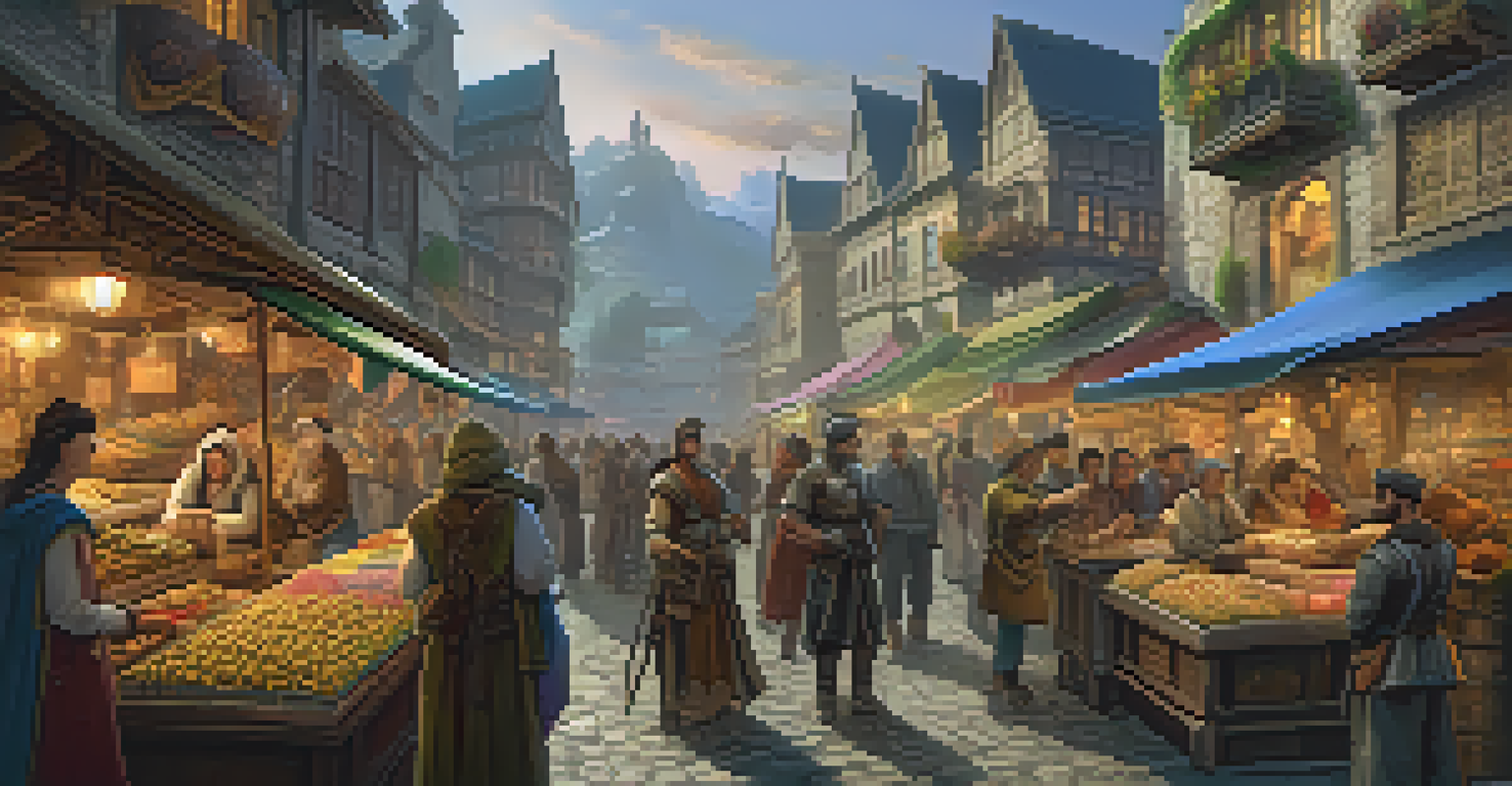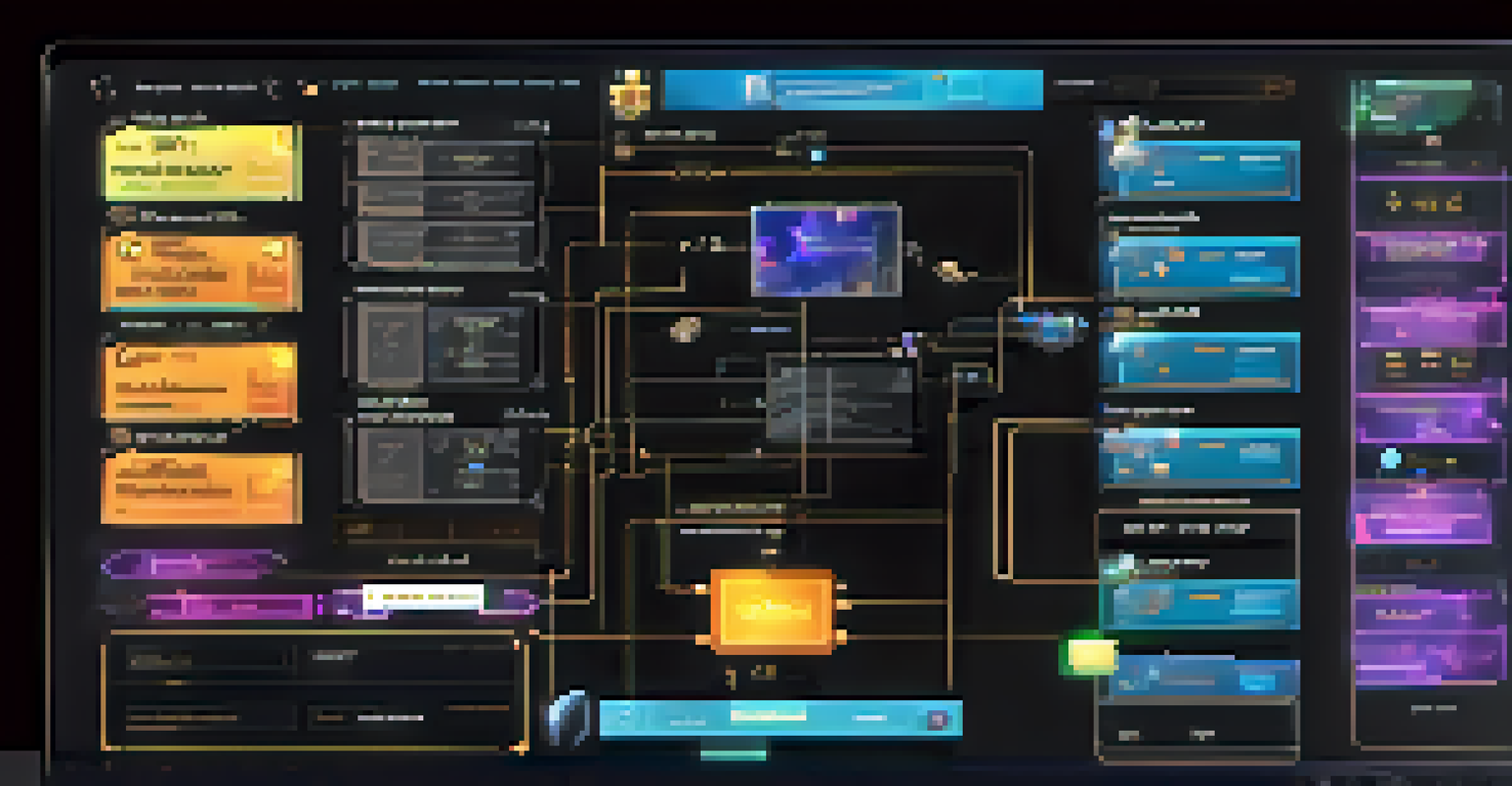The Rise of Decentralized Autonomous Organizations in Gaming

Understanding Decentralized Autonomous Organizations (DAOs)
Decentralized Autonomous Organizations, or DAOs, are a new breed of organizations that operate on blockchain technology. They enable decentralized governance, meaning decisions are made collectively by members rather than a central authority. This concept is becoming increasingly popular in gaming, where players seek more control over their experiences.
The future of gaming is not just about playing; it's about owning and shaping your experience.
Imagine a gaming community where every player has a voice in shaping the game's future—this is the power of DAOs. By utilizing smart contracts, DAOs automate processes like voting and fund distribution, making them efficient and transparent. This gives players a stake in the ecosystem, fostering loyalty and engagement.
Ultimately, DAOs represent a shift in how we think about ownership and governance in gaming. They empower players to contribute to the game's development, ensuring that their feedback directly influences the outcomes. This collaborative approach not only enhances gameplay but also strengthens community bonds.
The Evolution of Gaming Communities Towards DAOs
Gaming communities have long been built on shared interests and passions, but traditional models often leave players feeling disconnected from the decision-making process. With the rise of DAOs, these communities are evolving into more collaborative spaces where everyone can participate. This shift is redefining the relationship between developers and players.

Take, for example, a game where players can vote on which features to implement next. This not only keeps the game fresh and engaging but also ensures that the developers are more aligned with the community's desires. As players become more involved, the sense of ownership and investment in the game grows.
DAOs Enhance Player Engagement
By enabling collective decision-making, DAOs empower players to have a direct influence on game development and governance.
This evolution is particularly important in an industry where gamers demand more transparency and accountability. By adopting a DAO model, gaming communities can cultivate a culture of trust and cooperation, ultimately leading to richer gaming experiences.
How DAOs Enable True Player Ownership
One of the most compelling aspects of DAOs in gaming is the concept of true player ownership. Traditionally, players purchase in-game items or assets but have no real claim to them outside the game. With DAOs, players can own, trade, and even profit from their in-game assets on a blockchain, creating a new economy.
Decentralization empowers individuals, and in gaming, it’s about giving players a stake in their own adventures.
Think of it like owning a rare collectible card; you can showcase it, trade it, or sell it whenever you like. This level of ownership transforms the way players interact with games, making them more than just a pastime but a valuable investment. Players now have tangible stakes in their gaming experiences.
Moreover, this ownership model also encourages developers to create games that prioritize player satisfaction. When players can leverage their ownership for real-world value, it incentivizes developers to listen to community feedback and continuously improve the game. This creates a win-win scenario for both players and developers.
The Impact of DAOs on Game Development
DAOs are not just a buzzword; they are reshaping game development itself. By involving players in the decision-making process, developers can gain invaluable insights that help refine their projects. This collaborative approach allows for innovations that may not have been considered in a traditional development cycle.
For instance, with a DAO, players can propose new game mechanics or storylines, and the community can vote on which ideas to pursue. This democratization of game development means that the final product is more likely to resonate with the audience. Developers are essentially co-creators with their community.
True Ownership Through Blockchain
DAOs allow players to truly own, trade, and profit from in-game assets, transforming gaming into a valuable investment.
As a result, we see a shift from a top-down approach to a more fluid, community-driven model. This adaptability not only enhances the gaming experience but also fosters a sense of shared purpose among players and developers alike.
Challenges and Limitations of DAOs in Gaming
While the benefits of DAOs in gaming are significant, they are not without challenges. One major hurdle is ensuring that all voices are heard, especially in large communities where opinions can vary widely. If not managed properly, DAOs can become dominated by a vocal minority, sidelining valuable perspectives.
Additionally, the technical complexity of blockchain and DAOs can be intimidating for many players. For a DAO to function effectively, its members need a basic understanding of how it operates, which can be a barrier to entry for some. This raises the question of accessibility and whether all players can fully engage with the system.
Moreover, regulatory concerns also loom large. As DAOs continue to grow, they may attract the attention of regulators who wish to impose rules on their operations. Navigating these regulatory waters will be crucial for the long-term sustainability of DAOs in the gaming sector.
Case Studies: Successful DAOs in Gaming
Several gaming projects have successfully implemented DAOs, showcasing their potential in the industry. One noteworthy example is Axie Infinity, where players can breed, trade, and battle creatures called Axies. The DAO structure allows players to vote on game updates and governance decisions, ensuring that the community's voice is prioritized.
Another example is Decentraland, a virtual reality platform where users buy and develop parcels of land. The Decentraland DAO enables landowners to vote on policy changes and governance proposals, creating a vibrant community that actively shapes its environment. These case studies highlight how DAOs can empower players and enhance their experiences.
Collaborative Game Development
The DAO model fosters collaboration between players and developers, leading to innovative game features and a more responsive development process.
These examples not only illustrate the practical applications of DAOs but also serve as inspiration for future projects. As more developers recognize the value of community engagement, we can expect to see a surge in DAO-driven games that prioritize player involvement.
The Future of DAOs in the Gaming Industry
Looking ahead, the future of DAOs in gaming appears bright. As more players demand greater control and ownership over their gaming experiences, the adoption of DAOs is likely to increase. This trend could lead to the creation of entirely new game genres and economic models centered around community governance.
Moreover, the integration of DAOs with emerging technologies like virtual reality and augmented reality could create immersive experiences that redefine gaming. Imagine a VR game where players collaboratively build and govern their world through a DAO—this represents the next frontier in gaming innovation.

Ultimately, as the gaming landscape continues to evolve, DAOs will play a pivotal role in shaping the future of player engagement and ownership. The key will be to balance community input with strategic development, creating an ecosystem where everyone benefits.